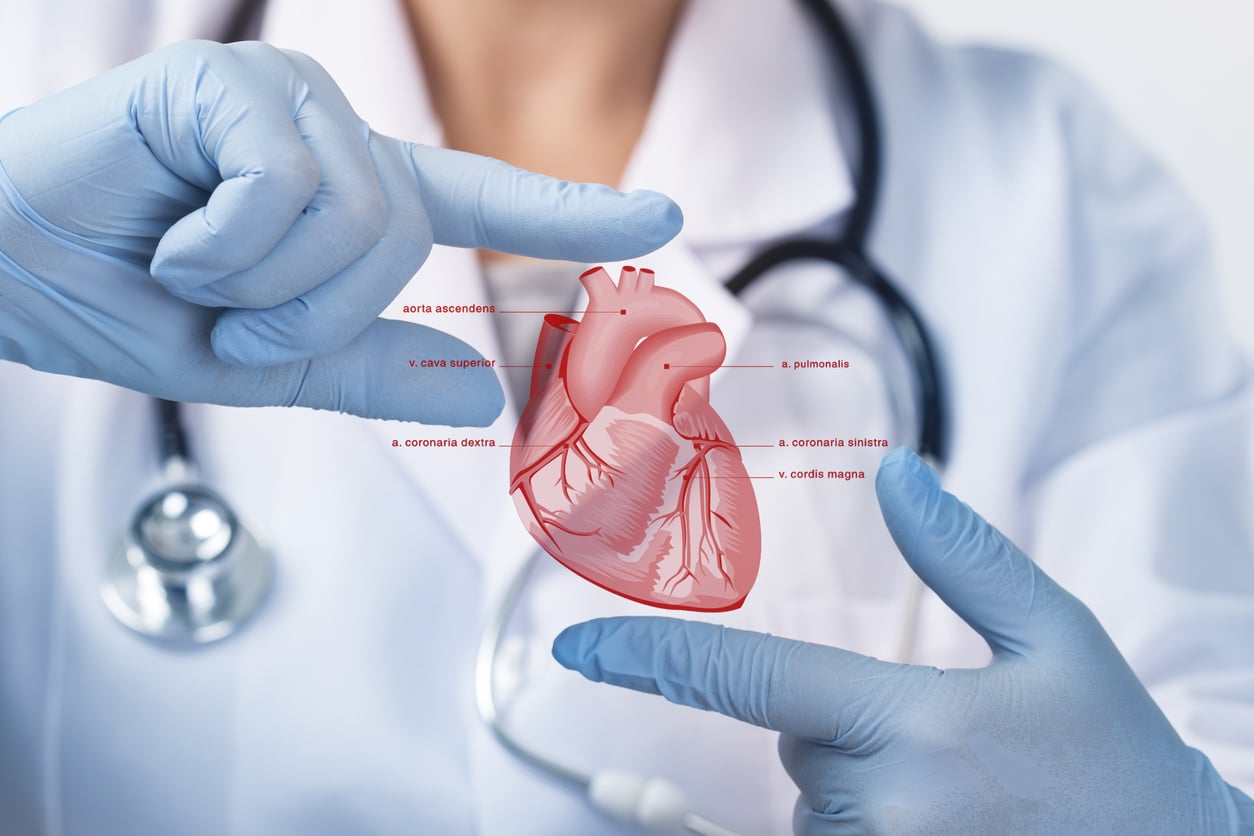Everything you need to know about Cardiology for vibrant heart health
Everything you need to know about Cardiology for vibrant heart health
Blog Article
Recognizing the Importance of Cardiology in Modern Healthcare Solutions
Cardiology plays an important role in modern health care, especially as heart problem proceeds to be the leading source of death worldwide. Developments in diagnostics and therapy have actually changed person treatment, making it possible for earlier treatments and boosted end results. The shift towards preventive cardiology empowers people to manage their wellness proactively. As technology continues to develop, the combination of innovative remedies may even more redefine cardiology's effect on public health, prompting a more detailed exam of arising trends and their implications.
The Prevalence of Heart Problem and Its Effect On Public Health And Wellness
Heart disease remains the leading reason of death around the world, its effect expands much beyond specific clients to influence public health and wellness systems and economies. The high frequency of cardiovascular disease places a significant stress on healthcare sources, necessitating boosted funding for treatment, recovery, and prevention programs. Public health campaigns must attend to risk elements such as obesity, cigarette smoking, and inactive lifestyles, which contribute greatly to the increasing incidence of heart conditions.Moreover, the financial worry related to cardiovascular disease is immense, encompassing not just straight clinical costs however additionally indirect expenditures related to shed productivity and premature mortality. Neighborhoods deal with obstacles in managing these costs, usually causing disparities in healthcare gain access to and results. As the populace ages and lifestyle-related threats proceed to rise, the urgency for effective cardiology interventions ends up being vital. Attending to heart condition is not just an issue of private health and wellness however likewise a vital public health and wellness concern.
Developments in Heart Diagnostics and Imaging Techniques
Recent developments in cardiac diagnostics and imaging techniques have actually changed the area of cardiology, boosting the capability to monitor and detect heart diseases. Techniques such as cardiac MRI, CT angiography, and echocardiography have actually come to be progressively advanced, providing thorough pictures of heart structures and functions. These methods enable the early recognition of problems like coronary artery disease, cardiac arrest, and valvular disorders.Moreover, developments in non-invasive diagnostics, such as wearable innovation and remote monitoring tools, have encouraged individuals and doctor. These tools assist in real-time tracking of heart rhythms and various other important signs, bring about timely treatments. In addition, expert system is being integrated into imaging analysis, improving precision and efficiency in medical diagnosis.
Technologies in Treatment Alternatives for Heart Issues
Recent advancements in cardiology have led to significant advancements in treatment choices for heart problems. These include innovative surgical methods that boost procedural results and arising medications that supply new methods for therapy. As the field advances, these innovations play a crucial duty in boosting individual care and outcomes.
Advanced Surgical Techniques
Advancements in medical techniques have transformed the landscape of cardiology, providing brand-new wish for clients with heart problems. Minimally intrusive treatments, such as catheter-based treatments, have considerably minimized recuperation times and health center stays. Strategies like robotic-assisted surgery improve precision, enabling doctors to browse complex anatomical frameworks with better accuracy. Improvements in imaging innovation facilitate real-time visualization throughout procedures, improving outcomes. Transcatheter aortic valve replacement (TAVR) exemplifies a breakthrough in dealing with aortic constriction, allowing valve replacement without open-heart surgery. Additionally, hybrid approaches that combine catheter-based and surgical approaches give customized options for different cardiac issues. These innovative surgical strategies not only enhance individual security yet also expand therapy alternatives, highlighting the vital role of advancement in modern-day cardiology methods.
Emerging Therapies and drugs
As the landscape of cardiology remains to evolve, emerging therapies and drugs play an essential role in boosting treatment alternatives for heart disease. Developments such as unique anticoagulants and progressed lipid-lowering agents have actually transformed the monitoring of cardiovascular conditions, significantly reducing individual morbidity and mortality. In addition, the development of genetics therapies and regenerative medicine uses promising opportunities for treating conditions formerly deemed incurable. Medical trials are consistently revealing the effectiveness of these treatments, pushing the borders of traditional therapies. The integration of digital health and wellness technologies helps with tailored medication, allowing for tailored treatment strategies based on hereditary and way of living variables. Collectively, these developments highlight the vibrant nature of cardiology, boosting patient outcomes and redefining requirements of treatment in modern-day health care.
The Role of Preventive Cardiology in Client Treatment
Precautionary cardiology plays a crucial role in patient treatment by concentrating on the recognition of threat factors that contribute to cardiovascular disease. Through lifestyle modification methods and early detection methods, doctor can successfully minimize the occurrence of cardiovascular occasions - Cardiology Jupiter. This proactive approach not only boosts person end results however likewise advertises long-lasting health
Risk Variable Recognition
While cardiovascular diseases remain a leading reason for morbidity and mortality worldwide, effective threat variable identification acts as a cornerstone of preventative cardiology. Identifying threat aspects such as hypertension, household, diabetic issues, and hyperlipidemia history is necessary for very early intervention. Medical care professionals utilize different evaluating approaches to evaluate these aspects, permitting customized safety nets. Additionally, recognizing an individual's lifestyle options, such as smoking and physical lack of exercise, further informs danger assessments. This detailed assessment makes it possible for clinicians to create personalized treatment plans targeted at mitigating risks. By prioritizing threat factor identification, medical care systems can enhance individual outcomes and decrease the total burden of heart diseases, inevitably contributing to enhanced public wellness strategies and source appropriation.
Lifestyle Adjustment Methods
A multitude of studies highlights the important duty of way of living modification strategies in decreasing heart disease threat. These approaches encompass dietary changes, increased exercise, cigarette smoking cessation, and weight management. By embracing a heart-healthy diet plan abundant in fruits, vegetables, entire grains, and lean healthy proteins, people can decrease cholesterol degrees and high blood pressure. Normal physical task strengthens the heart and enhances general cardio wellness. In addition, giving up smoking cigarettes substantially lowers the threat of heart problem and enhances recuperation prices for those with status quo. Weight administration even more adds to cardiovascular health by reducing other threat variables such as diabetes mellitus and high blood pressure. Carrying out these way of living alters not just promotes individual well-being yet likewise acts as a keystone of preventative cardiology in person treatment.
Early Discovery Strategies
Way of life modifications greatly add to minimizing cardiovascular condition dangers, however they are most effective when coupled with early detection strategies. Preventative cardiology highlights the significance of recognizing prospective heart concerns prior to they escalate right into significant conditions. Strategies such as high blood pressure monitoring, cholesterol testing, and advanced imaging modern technologies like echocardiograms play vital roles in reviewing cardio health and wellness. Biomarkers and genetic testing additionally improve the accuracy of early discovery, permitting tailored preventative strategies. Normal heart threat examinations empower health care suppliers to step in proactively, possibly avoiding cardiac arrest and strokes (Cardiology care). By incorporating these early detection approaches into regular treatment, clients can take advantage of prompt lifestyle interventions and targeted therapies, inevitably enhancing end results and boosting top quality of life
Integrating Technology Into Cardiology Practices
As improvements in innovation continue to improve various fields, the combination of ingenious devices and systems right into cardiology techniques has actually ended up being necessary for enhancing client treatment and end results. Telemedicine platforms permit cardiologists to keep track of individuals from another location, boosting accessibility to care while reducing the burden on healthcare facilities. Wearable devices, such as smartwatches, make it possible for continuous heart rate monitoring, alerting both doctors and clients to prospective problems in real-time. In addition, expert system (AI) is being made use of to evaluate substantial quantities of heart data, aiding in early diagnosis and tailored therapy plans. Advanced imaging strategies, consisting of 3D echocardiography, improve visualization of heart frameworks, bring about extra specific treatments. Electronic health and wellness records (EHRs) streamline person details monitoring, ensuring that cardiologists have prompt accessibility to important data. With each other, these technical improvements are transforming cardiology, advertising aggressive monitoring and enhanced health end results for individuals with cardiovascular problems.
The Relevance of Individual Education And Learning and Interaction
Patient education and involvement play an essential duty in the administration of cardiovascular wellness. By equipping individuals with knowledge regarding their problems, treatment choices, and way of living adjustments, medical care suppliers encourage individuals to take an active duty in their care. This positive technique can lead to enhanced adherence to recommended medicines, dietary modifications, and workout routines, ultimately decreasing the threat of complications.Engagement additionally fosters a strong patient-provider connection, urging open communication and trust. When clients really feel educated and entailed, they are pop over here more probable to voice problems and ask inquiries, which can lead to better scientific results. In addition, instructional resources, such as workshops or digital systems, can enhance understanding and promote self-management techniques. Generally, prioritizing individual education and learning and involvement is crucial for boosting cardiovascular health and wellness, enhancing high quality of life, and minimizing health care expenses connected with heart diseases.
Future Trends in Cardiology and Their Potential Impact

Regularly Asked Concerns
What Way Of Life Modifications Can Minimize Heart Problem Danger?
The current question addresses way of living modifications that can considerably decrease heart disease threat. Cardiologist near me. Taking on a well balanced diet plan, engaging in normal physical task, maintaining a healthy and balanced weight, handling tension, and avoiding tobacco can notably enhance cardiovascular health
Just How Can I Acknowledge Very Early Indications of Heart Problems?
Acknowledging early indicators of heart problems entails surveillance signs such as chest discomfort, shortness of breath, tiredness, and irregular heart beat. Timely understanding of these indicators can trigger necessary clinical evaluation and treatment for better results.
What Are the Distinctions Between Cardiologists and Heart Surgeons?
The differences between cardiologists and heart cosmetic surgeons lie in their functions; cardiologists mainly identify and take care of heart problems via non-invasive techniques, while heart specialists perform surgeries to correct architectural heart concerns. Each plays an important, unique duty.

How Often Should I Get My Heart Wellness Checked?
The regularity of heart medical examination varies based on specific risk elements. Typically, adults need to undertake examinations every one to 2 years, while those with status quo might need even more regular assessments as advised by medical care experts.
What Role Does Genes Play in Cardiovascular Disease Risk?
Genes significantly affects cardiovascular disease danger, with familial patterns suggesting inherited problems. Particular genetics can predispose people to hypertension, cholesterol concerns, and other cardio problems, highlighting the relevance of hereditary testing in examining heart health. Heart illness remains the leading reason of fatality worldwide, its influence prolongs far past individual people to impact public wellness systems and economies. Public wellness initiatives need to resolve risk aspects such as obesity, cigarette smoking, and less active lifestyles, which contribute substantially to the rising occurrence over at this website of heart conditions.Moreover, the financial burden connected with heart condition is tremendous, encompassing not only straight clinical prices yet also indirect expenses related to lost productivity and early death. Preventative cardiology plays an essential role in patient treatment by concentrating on the recognition of danger aspects that add to heart illness. Synthetic intelligence (AI) and device knowing are improving diagnostics and individual surveillance, making it possible for very early discovery of heart conditions. The differences between cardiologists and cardiac surgeons lie in their roles; cardiologists mainly handle and identify heart conditions through non-invasive methods, while cardiac surgeons execute surgical treatments to fix structural heart problems.
Report this page